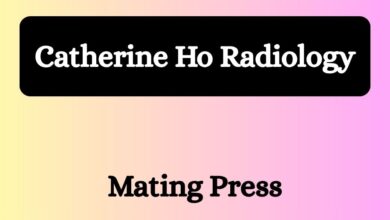What Not to Say to Occupational Health UK: 10 Critical Mistakes to Avoid

Occupational health assessments in the UK play a crucial role in ensuring employee well-being while enabling employers to make informed decisions about workplace adjustments, capability, and fitness for work. These assessments are meant to be impartial and fair, but what you say during your occupational health consultation can significantly influence the outcome. Many employees unknowingly say things that may jeopardize their case, misrepresent their condition, or create confusion about their situation.
This article will comprehensively guide you on what not to say to occupational health UK and provide useful insights into how to approach these assessments with confidence and clarity.
Understanding the Role of Occupational Health in the UK
Before diving into what not to say, it is essential to understand what occupational health professionals do. Occupational health (OH) practitioners assess employees’ physical and mental health concerning their work environment. They offer advice on:
- Workplace adjustments that might be necessary
- Fitness for work
- Return-to-work plans after sickness absence
- Disability accommodations under the Equality Act 2010
Their role is not to act as a representative of the employer or employee but to provide an independent, medical-based recommendation. Keeping this in mind, let’s explore what not to say during your occupational health assessment.
1. Minimizing or Downplaying Your Symptoms
One of the most common mistakes employees make is minimizing their symptoms. While it might be tempting to say, “It’s not that bad” or “I can manage,” doing so could undermine your case. Occupational health professionals need an accurate understanding of how your condition affects your ability to work.
Instead of downplaying your symptoms, be clear and factual. If your condition limits your ability to perform tasks, explain how and why in detail.
2. Exaggerating or Overstating Your Condition
On the flip side, exaggerating symptoms can also be problematic. If occupational health suspects that you are overstating your difficulties, it may raise questions about credibility and could impact their recommendations.
Honesty is key. Stick to the facts and describe the real impact of your health condition on your daily work life.
3. Saying You “Don’t Need Any Adjustments” When You Do
If you struggle with work-related tasks due to your health condition, it is essential to acknowledge this and discuss possible adjustments. Saying, “I don’t need any adjustments” when you do could result in no changes being made, leaving you in the same challenging position.
Instead, consider discussing reasonable adjustments that could help you perform better, such as flexible hours, ergonomic seating, or workload modifications.
4. Making Medical Diagnoses or Self-Diagnosing
Avoid saying things like, “I think I have depression” or “I’m sure I have a slipped disc.” Occupational health professionals rely on medical evidence, so self-diagnosis is not helpful.
Instead, discuss your symptoms and how they affect your work. Let the occupational health professional make the necessary medical assessments based on your medical history and specialist reports.
5. Saying Your Condition Is Entirely Work-Related Without Evidence
If you believe your condition is work-related, ensure that you have medical reports or evidence to support this. Stating, “This job made me ill” without documentation can weaken your case.
Instead, explain how your job contributes to your symptoms and reference any medical records or doctor’s notes that support your claim.
6. Saying You “Just Want a Sick Note”
Many employees mistakenly assume that occupational health is there to issue sick notes. Saying, “I just need a sick note” makes it appear as though you are only seeking time off rather than appropriate support and accommodations.
A better approach would be to discuss your symptoms, challenges, and any necessary workplace adjustments.
7. Blaming Your Employer or Colleagues
Avoid statements like, “My boss is the reason I’m sick” or “My coworkers are toxic.” Occupational health assessments are not about workplace conflicts but about your health and how it affects your job performance.
If workplace issues contribute to your condition, describe the work environment factually rather than placing blame.
8. Saying You’re “Fine” When You’re Not
It’s common for employees to downplay their condition by saying, “I feel fine now.” This can lead to recommendations that don’t align with your needs.
Instead, be honest about your condition, even if you are having a good day. Occupational health professionals need to understand your overall situation, not just how you feel at the moment.
9. Dismissing Questions or Avoiding Answering Truthfully
Some employees feel uncomfortable discussing their health, leading them to give vague or dismissive answers. Phrases like “I don’t know” or “It’s not important” can create gaps in your assessment.
Provide clear and detailed answers to ensure your occupational health report is as accurate as possible.
10. Refusing to Cooperate or Being Defensive
It’s understandable to feel nervous or frustrated about an occupational health assessment, but refusing to cooperate or being defensive can make the process more challenging.
Approach the assessment with a cooperative mindset and engage with the process to get the best possible outcome.
Final Thoughts: How to Approach Your Occupational Health Assessment
Occupational health assessments can be beneficial when approached with honesty and clarity. To ensure a fair and accurate evaluation:
- Be honest about your symptoms and how they impact your work.
- Avoid exaggerating or downplaying your condition.
- Discuss reasonable adjustments if necessary.
- Provide medical evidence where possible.
- Maintain a professional and cooperative attitude.
By following these guidelines, you can ensure that your occupational health assessment leads to the support you need while maintaining your professional integrity.
For more useful workplace insights, visit Mating Press, where we provide expert guidance on occupational health, workplace rights, and employee well-being.


